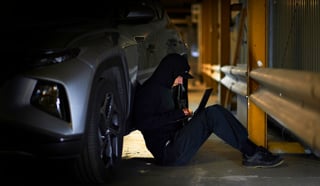It’s night and you are driving on a country road. It’s dark and it’s been raining; the roads are slippery.
The sat nav is guiding you along unfamiliar territory while you relax to the soothing sounds of your favourite tunes.
The next thing you know there are two paramedics hovering over you... you have just had an accident, but it could have been worse.
Thanks to a clever onboard system the emergency services were notified almost as soon as the airbags were deployed, reducing the time it would normally take to reach you.
This might sound like a work of science fiction, but it is actually happening now. And, if the European Commission gets its way, every new model of vehicle produced after 2014 could be fitted with the eCall system.
The pan-European in-vehicle emergency call system, or eCall for short, is a form of telematics tracking that operates after an accident has been detected by the on-board vehicle sensors.
The eCall creates an emergency call carrying voice and data to a public safety answering point (PSAP).
The voice call is dealt with by a trained eCall operator while the data contains information about the accident, including the vehicle’s precise location and possibly details about the severity of the impact.
The question raised by some technology watchers is whether eCall complements the current raft of telematics products, or whether it replaces the need for companies to invest in telematics.
The issue surrounds extended uses for eCall. As the system operates off satellite in a similar manner to telematics, further development could see its uses include monitoring driver behaviour for speeding, harsh braking and acceleration.
Certainly the system does not offer the reporting functionality, such as exception reporting against set KPIs, that telematics can.
And it has some way to go before vehicle utilisation and routing become an option – if they do at all.
Indeed, Trimble believes telematics will soon offer all the functions of eCall. “Crash notification is an up and coming feature with telematics.
"It means that for non emergency accidents a message is sent alerting about repairing a vehicle or third party damage,” said Martin Otter, head of insurance at Trimble.
Nevertheless, there are many who believe telematics suppliers will need to re-examine their business model in order to remain relevance to fleet operators.





















Login to comment
Comments
No comments have been made yet.